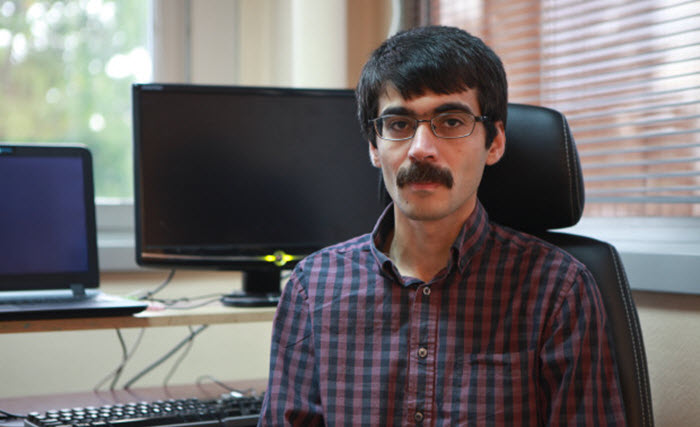
In an article by Toby Meyjes for Metro.co.uk on Saturday 20 August, he writes about Farzad Madadzadeh, who worked as a taxi driver in Tehran.
Madadzadeh says that he had just dropped off a fare in Karaj and was returning to Tehran when his phone rang. The police were on the line. They asked him to come to a station in the Iranian capital. “I thought that it related to my taxi driving,” Farzad says, “Perhaps someone had taken my license plate down and reported me.”
Unfortunately, that wasn’t the case. Farzad became a political prisoner. His active support of the People’s Mujahedin of Iran (PMOI), an opposition group within Iran, had captured the attention of the authorities.
“When I went inside the station I saw that the atmosphere was not normal. There were several plain clothes policemen there. I didn’t realize at the time but they were agents of the ministry of intelligence.”
He was arrested, subjected to months of interrogation: brutal beatings and solitary confinement, which was finally followed by a trial that lasted a matter of minutes, where he was sentenced to five years in prison.
Farzad was imprisoned in 2009, and released in 2014. He was one of tens of thousands of prisoners incarcerated at that time, and he was one of the lucky ones. Many didn’t escape with their lives.
According to Amnesty International estimates, between 2013 and 2015 at least 2,000 people have been executed in Iran. Recently, the death rates have grown. Just a few weeks ago some 20 Sunni inmates were hanged at Gohardasht Prison. Many worry that this may be the beginning of one of the bloodiest periods in Iran’s recent history.
In 1988, when Iran’s war with Iraq was winding down, over one summer the regime executed many political prisoners. The killing was said to have been ordered by a fatwa issued by the country’s supreme leader, Ayatollah Ruhollah Khomeini.
More conservative estimates put the number of victims at around 5,000 but others place it at closer to 30,000.The British Parliamentary Committee for Iran Freedom recently said this should be considered a crime against humanity.
Farzad said. “They took a hood out put it on my head and threw me in a car.” He was taken to Evin Prison and its notorious Ward 209 – run by the intelligence ministry.
He told Meyjes, “They would take me at eight or nine in the morning or eight or nine in the evening. Whatever information they wanted from me, if I wouldn’t give it to them they would start to beat me. There was three of them and they would kick me around like a football. This was not just to extract information from me also they wanted me to make a false confession.” He added, “But to be honest with you the worst of the torture was the solitary confinement.” He spent three month spells twice, in solitary confinement.
Farzad had taken part in human rights activities as a supporter of the PMOI. He supported families of prisoners and conveyed their news outside Iran. He also took part in anti-regime protests, explaining that his “first priority was activities against the regime.” Such activities carry a risk.
He said, “It is the right of any individual to protest. I recognize this right for myself as well. Many of my other friends realized this right for themselves. Of course, the price is high many of them are in prison now, are executed now. I accepted that if it comes to that I would be willing to pay the price for it with my life. For me this sort of thing happened a lot in prison.”
For his participation in anti-regime activities, Farzad would eventually face two charges: “Enmity against God” and “Having a Relationship with the PMOI”.
He was taken to court, but say the session lasted five minutes. “In five minutes the judge told me you are accused of War on God and having a Relationship with the PMOI they do not give me a chance to defend myself.”
He served his final year under the current president, Hassan Rouhani. He said that since his release, things have got worse, not better, and continued, “For us not only did the human rights situation not improve it got worse. The atmosphere in prison became more closed, for example, hospital treatment for those that are ill, that was put off completely.”
“The number of arrests increased; teachers, workers, all sorts of people. Also the number of executions of prisoners was higher.”
Last year alone, Amnesty International says some 977 prisoners were executed.
Farzad said: “The atmosphere of the prisons is closed again and even the prisoners are warning their own relatives of this.”
Multiple demonstrations have taken place all over the world in recent weeks, in an attempt to draw attention to what is happening in Iran.
“Right now is a very worrying time inside Iran the social atmosphere is very intense. It’s like a powder keg every day there are protests and anything can trigger a protest. The only tool the regime has to be able to maintain power is suppression and, in particular, execution. The western governments must put pressure on the regime to make it stop,” he stated and added, “Right now these days you can find multiple protests in Tehran daily. Teachers, workers, this is of economic nature but a lot of it is political. But all these protests what they seek is a regime change. This is very visible. You can see it in the slogans they are chanting, the way they are acting and the protests they are holding.”
Farzad Madadzadeh concludes, “All these arrests and executions they show Iranian society wants change.”







